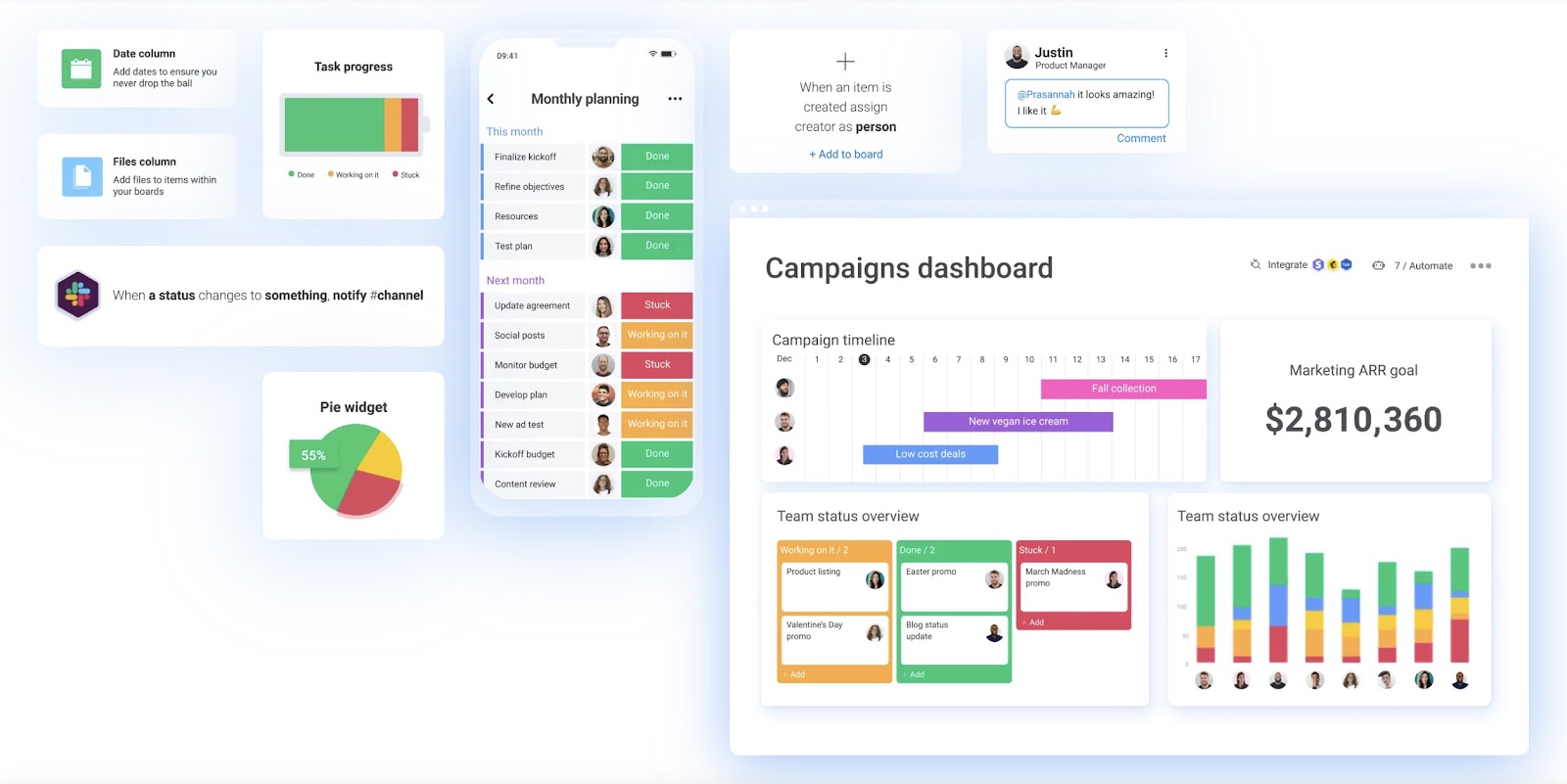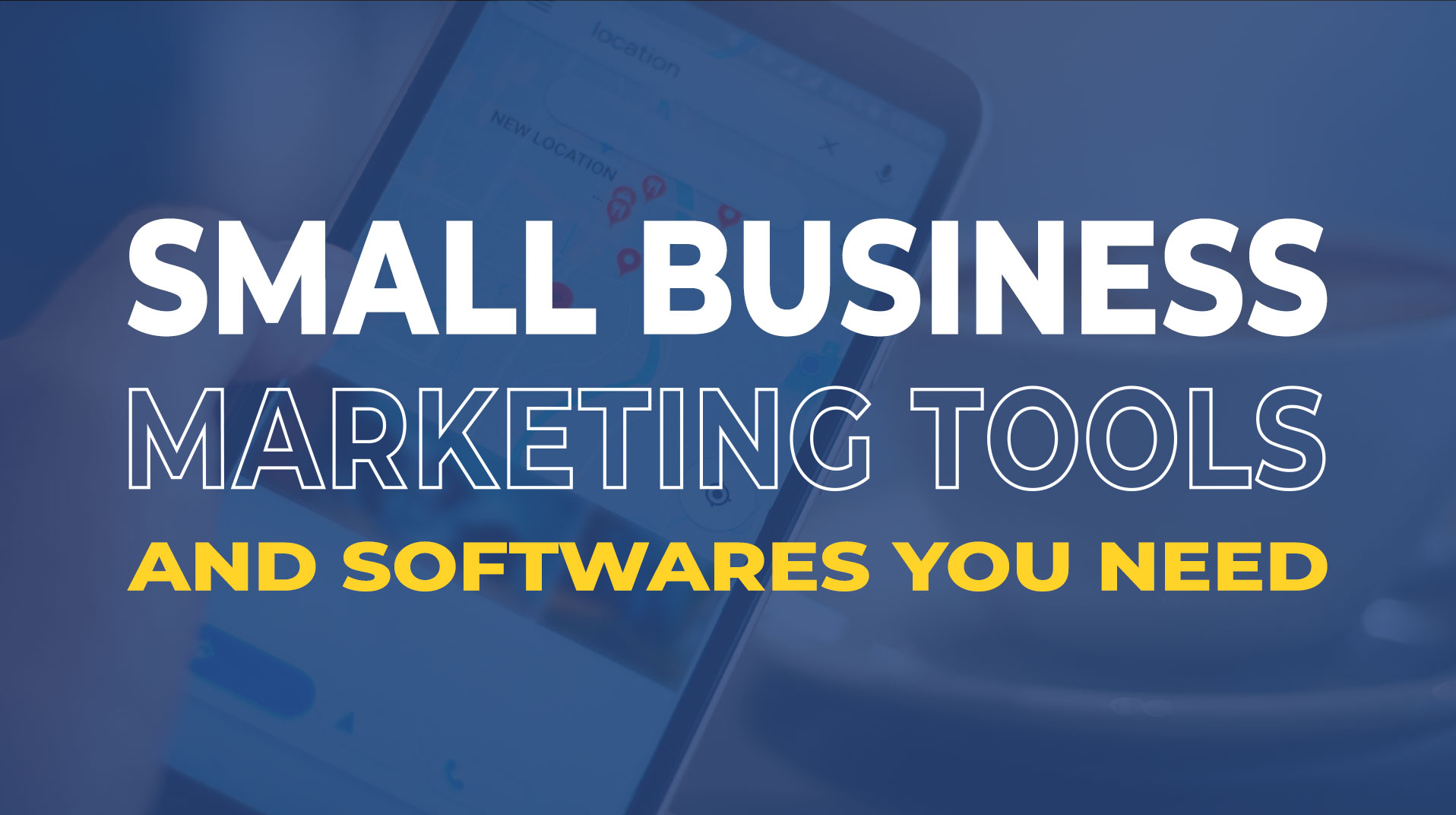Crafting Success: Small Business Marketing Software Solutions
Exploring the world of Small Business Marketing Software, this introduction aims to captivate readers with a glimpse into the essential tools and strategies that propel small businesses forward.
From defining key features to discussing the benefits and considerations, this overview sets the stage for a comprehensive dive into the realm of marketing software for small businesses.
Overview of Small Business Marketing Software

Small business marketing software is a tool specifically designed to help small businesses manage and execute their marketing strategies efficiently. It offers a range of features to streamline marketing efforts, improve customer engagement, and drive business growth.
Key Features of Small Business Marketing Software
- Customer Relationship Management (CRM) capabilities to track and manage customer interactions.
- Email marketing tools for targeted campaigns and communication.
- Social media management to schedule posts, track engagement, and analyze performance.
- Analytics and reporting functionalities to measure the effectiveness of marketing campaigns.
- Automation features to streamline repetitive tasks and workflows.
Importance of Using Marketing Software for Small Businesses
Small business marketing software plays a crucial role in helping businesses reach their target audience effectively, increase brand visibility, and drive sales. By leveraging the right tools, small businesses can compete with larger competitors, improve customer relationships, and achieve sustainable growth.
Differences from Enterprise-level Marketing Tools
- Cost: Small business marketing software is typically more affordable and tailored to the budget constraints of small businesses.
- Scale: Enterprise-level tools are designed to handle larger volumes of data and more complex marketing operations compared to small business software.
- Customization: Small business software often offers pre-built templates and workflows, while enterprise tools provide more customization options to meet specific business needs.
- Support: Small business marketing software usually offers dedicated support for smaller teams, while enterprise tools may have more extensive support options for larger organizations.
Types of Small Business Marketing Software
Small business marketing software comes in various types to help businesses reach their target audience effectively. These software options can streamline marketing efforts and improve overall efficiency.
Email Marketing Software
Email marketing software is designed to help small businesses create, send, and track email campaigns. These tools often come with features like customizable templates, automation, and analytics to measure campaign performance.
Social Media Management Software
Social media management software allows small businesses to schedule posts, engage with followers, and analyze social media performance across different platforms. These tools help in maintaining a consistent online presence and monitoring audience interactions.
CRM Software
Customer Relationship Management (CRM) software is essential for small businesses to manage customer data, track interactions, and improve customer relationships. CRM tools often include features like contact management, sales tracking, and customer segmentation to personalize marketing efforts.
Cloud-based vs On-premise Marketing Software
Cloud-based marketing software is hosted on remote servers and accessed through the internet, offering scalability, flexibility, and automatic updates. On the other hand, on-premise marketing software is installed on local servers and provides more control over data but requires maintenance and upfront costs.
Benefits of Small Business Marketing Software

Marketing software offers numerous advantages for small businesses, helping them streamline their marketing efforts, improve customer engagement, and increase sales.
Automation of Marketing Tasks
Marketing software allows small businesses to automate repetitive tasks such as email marketing, social media posting, and customer segmentation. This automation saves time and resources, allowing businesses to focus on more strategic activities.
Personalized Marketing Campaigns
With the help of marketing software, small businesses can create personalized marketing campaigns based on customer preferences, behavior, and demographics. This personalized approach helps in targeting the right audience with the right message, leading to higher conversion rates.
Data Analysis and Insights
Marketing software provides valuable data and insights into customer behavior, campaign performance, and ROI. By analyzing this data, small businesses can make informed decisions, optimize their marketing strategies, and improve overall outcomes.
Improved Customer Engagement
By leveraging marketing software, small businesses can engage with customers through multiple channels, such as email, social media, and SMS. This omnichannel approach helps in building stronger relationships with customers, increasing loyalty, and driving repeat business.
Increased Sales and Revenue
Marketing software enables small businesses to reach a wider audience, generate more leads, and convert them into customers. By implementing targeted campaigns and tracking results, businesses can boost sales and revenue effectively.
Considerations When Choosing Small Business Marketing Software
When selecting marketing software for a small business, it is crucial to consider several key factors that can impact the effectiveness and efficiency of your marketing efforts. Factors such as scalability, ease of use, pricing, and integrations play a significant role in determining the best fit for your business needs
Additionally, evaluating the return on investment (ROI) of investing in marketing software is essential to ensure that you are getting the most value for your money.
Scalability
Scalability refers to the ability of the marketing software to grow and adapt to the changing needs of your business. It is important to choose a solution that can scale with your business as it expands, without requiring a complete overhaul of your marketing tools.
Look for software that offers flexible features and can accommodate your business's growth over time.
Ease of Use
The ease of use of marketing software is crucial for small businesses with limited time and resources. Opt for a user-friendly solution that does not require extensive training or technical expertise to operate effectively. Intuitive interfaces, clear navigation, and comprehensive customer support can make a significant difference in how efficiently you can leverage the software for your marketing campaigns.
Pricing
Pricing is a key consideration for small businesses when choosing marketing software. Evaluate the cost of the software against the features and benefits it offers to determine the best value for your budget. Consider any additional fees, such as setup costs, subscription fees, or add-on services, to get a comprehensive understanding of the total cost of ownership.
Integrations
Integration capabilities are essential for small businesses that rely on multiple tools and platforms for their marketing efforts. Choose software that seamlessly integrates with your existing systems, such as CRM software, email marketing platforms, and e-commerce solutions. This ensures smooth data flow and efficient collaboration across different marketing channels.
Evaluating ROI
To evaluate the ROI of investing in marketing software for a small business, track key metrics such as lead generation, conversion rates, customer acquisition costs, and overall revenue growth. Compare these metrics before and after implementing the software to determine the impact on your marketing performance.
Consider factors such as time savings, increased productivity, and improved campaign results to assess the overall value of the software investment.
Implementation and Best Practices
Implementing small business marketing software can be a game-changer for your business. It's important to follow the right steps and best practices to ensure a smooth integration and maximize the benefits of the software.
Steps for Implementing Small Business Marketing Software
- Identify your business goals and objectives that you want to achieve with the software.
- Research and choose the right software that aligns with your specific needs and budget.
- Train your team on how to use the software effectively to ensure successful implementation.
- Integrate the software into your existing business processes for seamless operation.
- Monitor and evaluate the performance of the software regularly to make necessary adjustments.
Best Practices for Integrating Marketing Software
- Involve key stakeholders in the decision-making process to ensure buy-in and support.
- Create a detailed implementation plan with clear timelines and responsibilities for each team member.
- Provide adequate training and support to employees to help them adapt to the new software.
- Regularly communicate with your team to address any issues or concerns that may arise during the implementation process.
- Seek feedback from users to continuously improve the software's usability and effectiveness.
Training Employees on Using the Software Effectively
- Offer hands-on training sessions to familiarize employees with the software's features and functionalities.
- Create user guides and resources for quick reference and troubleshooting.
- Encourage employees to ask questions and seek help when needed to ensure they are using the software correctly.
- Provide ongoing support and refresher training to reinforce best practices and maximize the software's benefits.
Outcome Summary

In conclusion, Small Business Marketing Software offers a powerful foundation for growth and success, equipping businesses with the tools needed to thrive in today's competitive landscape. Discover the endless possibilities that await with the right marketing software at your fingertips.
Clarifying Questions
What are the key features of Small Business Marketing Software?
Small Business Marketing Software typically includes features such as email marketing, social media management, CRM integration, and analytics tools.
How can marketing software help streamline marketing efforts for small businesses?
Marketing software automates tasks, organizes data, and provides insights that enable businesses to execute targeted campaigns efficiently.
What factors should be considered when choosing Small Business Marketing Software?
Factors like scalability, ease of use, pricing, and integrations play a crucial role in selecting the right marketing software for a small business.
What are some best practices for implementing marketing software into business processes?
It's important to train employees effectively, ensure smooth integration with existing processes, and regularly evaluate performance to optimize the software's benefits.